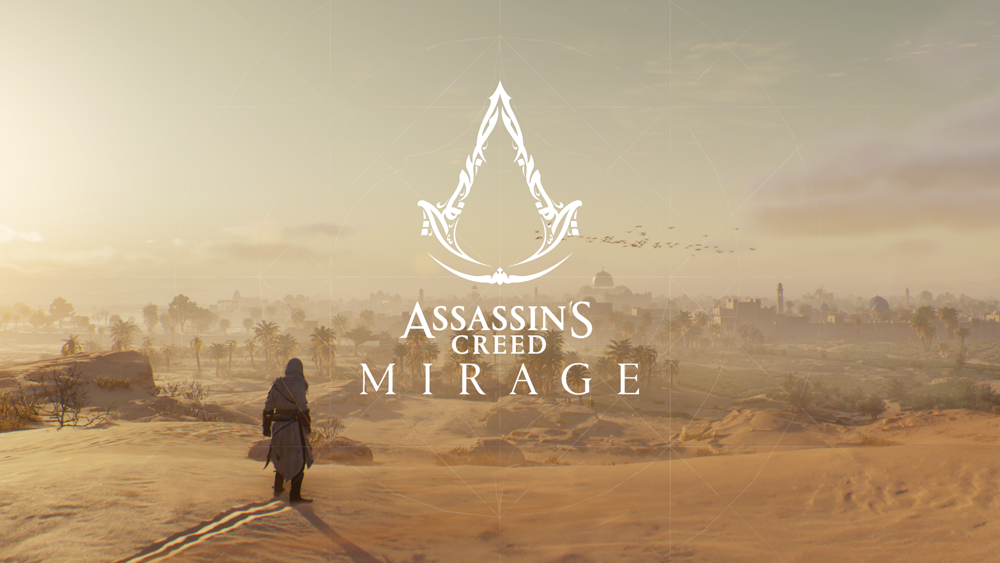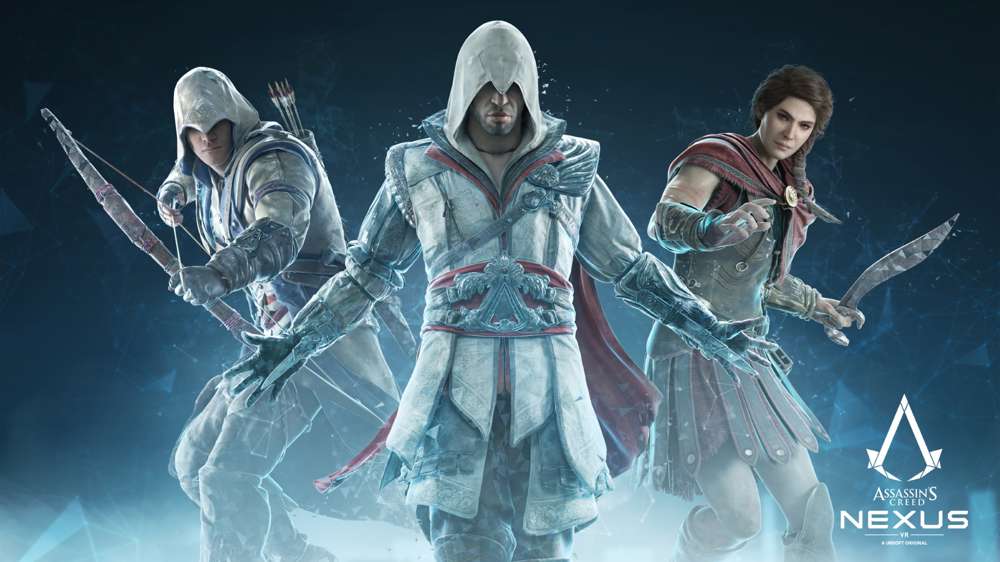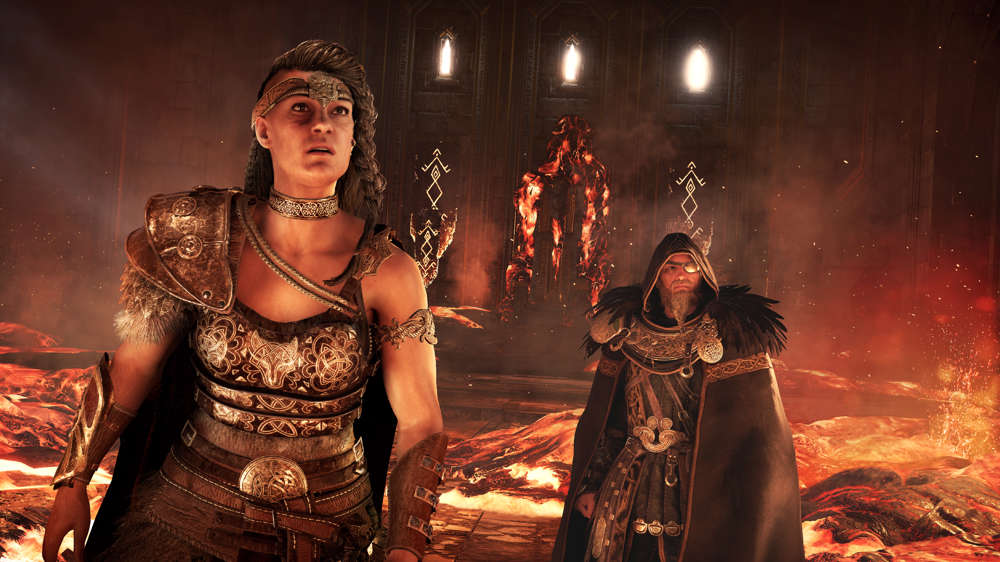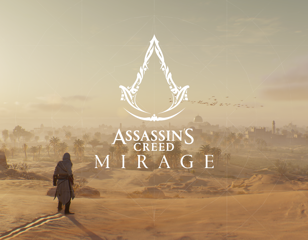Assassin's Creed Mirage review: Thrilling throwback isn't just hot air
Assassin's Creed Mirage is an action-adventure game developed by Ubisoft Bordeaux and published by Ubisoft. The game is the thirteenth major instalment in the Assassin's Creed series and the successor to 2020's Assassin's Creed Valhalla.

Ultimately, I’m having a hard time trying to fathom why Ubisoft is selling Assassin’s Creed Mirage at a discounted rate. Sure, it’s much smaller in scale compared to the three RPG epics that came before it. However, when comparing Mirage to the greats like Assassin’s Creed 2 or Brotherhood, I almost certainly don’t feel shortchanged for my time.
There are mild qualms with its accessibility (as a visually impaired person, I found picking out small pieces of evidence extremely tricky), and the occasional tailing missions are still as dull as they were a decade ago.
On the whole, though, Assassin’s Creed Mirage is the definition of a return to form. It’s stripped out all of the franchise's accrued bloat and brought everything back to basics, resulting in the first truly stealth-focused Assasins’ Creed game in years. I truly hope this isn’t the last we see of this formula.
Images via Ubisoft
Platform(s)
PC, Xbox Series X|S, PlayStation 5
Released
05/10/2023
Developer
Ubisoft Bordeaux
Publisher
Ubisoft
Ask any Assassin’s Creed fan, and you’ll quickly discover that the franchise has lost its way a little in the last few years. That’s not to say that the recent instalments have been bad, but they’re certainly a far cry from the social-stealth-focused origins that the series was borne into.
As such, Ubisoft Bordeaux has set out to create an Assassin’s Creed game that harkens back to the good old days. Bombastic spartan kicks and demi-god powers are forgone, swapped out for a stealthy skill set that requires players to think carefully, tactically, and act intentionally.
It’s all wrapped up in a story seen through the eyes of a younger Basim, a returning character from Assassin’s Creed Valhalla. In the process, Mirage manages to almost perfectly capture what made those original Assassin’s Creed games so enticing, trimming the fat that the series has grown to host, and resulting in a surprisingly tight experience that’s well worth experiencing.
GGRecon Verdict
Ultimately, I’m having a hard time trying to fathom why Ubisoft is selling Assassin’s Creed Mirage at a discounted rate. Sure, it’s much smaller in scale compared to the three RPG epics that came before it. However, when comparing Mirage to the greats like Assassin’s Creed 2 or Brotherhood, I almost certainly don’t feel shortchanged for my time.
There are mild qualms with its accessibility (as a visually impaired person, I found picking out small pieces of evidence extremely tricky), and the occasional tailing missions are still as dull as they were a decade ago.
On the whole, though, Assassin’s Creed Mirage is the definition of a return to form. It’s stripped out all of the franchise's accrued bloat and brought everything back to basics, resulting in the first truly stealth-focused Assasins’ Creed game in years. I truly hope this isn’t the last we see of this formula.
- Read our review of EA FC 24 to see how the game has changed this year
Inserted into the timeline

As alluded to, Mirage picks up Basim’s story a few decades before the events of Assassin’s Creed Valhalla in the city of Baghdad, 861 AD. As a prequel to the Viking epic, this is the tale of how Basim first became entangled in the web of the Hidden Ones, going from his initiation right the way through to where he ends up at the start of Valhalla.
Although Basim is street-smart, he’s still very much a new recruit for the Assassins. In terms of character, he holds a similar stoicism to Altair, mixed with a small amount of charm and wit that’s clearly derived from Ezio. He’s a joy to play as, and the performance from Lee Majdoub really brings Basim to life.
As far as stories go in the Assassin’s Creed timeline, this one is fairly non-consequential. The overarching plot is your typical Templar-esque affair, with a select few corrupt individuals infiltrating the ruling Caliphate, pulling the strings to better suit their own villainous agenda. Of course, it’s your job as Basim to take them all down one by one, another parallel to the very first Assassin’s game.
Some will be extremely pleased to know that, for the most part, Mirage cuts out any form of futuristic gameplay altogether. Aside from a short cutscene monologue from William Miles in the opening cutscene, you’re never pulled out of the Animus to engage in dull dialogue about how the events of the past are the key to our future or anything like that.
Instead, there are only ever nods back to The Ones Who Came Before, almost a rite of passage for any Assasin’s Creed game these days. Of course, those who have played Valhalla will almost certainly get the most out of these story events, but they’re not too heavy-handed that newcomers won’t enjoy them, either.
- Cyberpunk 2077: Phantom Liberty is also a must-play from this year - read our review
Follow the thread

While the general structure of the story may be a tale as old as time for the Assassin’s series, the way that you go about it has been completely overhauled in Mirage. Each mission is laid out on an investigation board, with clues and plot lines interconnecting them all, and greyed-out figures at the centre of them all.
You’ll certainly be doing lots of killing in this game, but there’s a surprising amount of detective work to be done, too. With the primary goal to uncover the corrupt members of the Caliphate, Basim must follow each lead to its completion, uncovering new clues and pieces of evidence to reveal their identity before striking at the heart of their operation.
The structure is reminiscent of arguably the best gameplay system from Assassin’s Creed Odyssey, the Cult of Kosmos. Here, the process of sniffing out a person in hiding has been fleshed out massively, forcing the player to do quite a bit of the legwork.
There’s no mini-map in Assassin’s Creed Mirage, only armed with a compass, eagle-vision, and lots of clues. Often, you won’t even be given a 3D marker to follow, instead asked to read into documents and maps to uncover your next destination. When you get there, Basim must go over investigation areas with a fine-toothed comb, looking in every small nook and cranny for information.
Overall, it’s an excellent way to structure the main story, as it gives the player an active role in discovering new evidence to naturally progress the story. It also paces out the story really evenly, with each main investigation branch only taking a couple of hours at a time. This broke up the game into manageable chunks, with downtime between each to pursue the meaningful side quests that Baghdad is filled with.
- More of a racing fan? Read our review of Forza Motorsport
Welcome to Baghdad

Speaking of Baghdad, the city is easily one of the best new locations for an Assassin’s Creed yet. Feeling comparable in size to Constantinople from Revelations, it’s a gorgeous place that feels truly alive with people and culture. In fact, I’d go as far as to say that Mirage is the prettiest-looking entry to the series since Unity.
I’m unsure if the smaller scale of Mirage has given Ubisoft time to create a more hand-crafted feel to this city, but it certainly feels that way. Parkour makes a big return, with Baghdad practically screaming at you to use its many rooftop paths to traverse its busy streets.
Ziplines, vault poles, corner swings, and many more traversal methods are all neatly laid out across the sprawl, letting you clearly mark out a path in your head before taking it. Parkour never really went away in Assassin’s Creed, but the environments have certainly tapered off in their ability to necessitate it. Here, it almost prevents you from ever wanting to fast travel anywhere ever again.
As is tradition, there are still a couple of times when Basim will jump somewhere completely different to where you intended. Thankfully, these occasions are far more rare than before, with parkour mostly feeling fast and fluid.
While Assassin’s games of late are also known for their practically bloated amount of side content, that’s not the case here. Sure, there are a few collectable items to find, but none of them felt like a chore as the rewards all fed back into the core gameplay loop.
For example, pickpocketing rare items is rewarded with tokens, which can be used to either quickly reduce notoriety, bribe informants, or hire mercenaries to create a distraction. Competing contracts also provided Basim with a wealth of upgrade materials to improve his gear.
Sure, the side quests don’t move the needle, with most consisting of small fetch quests, eavesdropping, escorting or occasionally tailing someone. Sadly, tailing missions are still dull and are the one nostalgic mechanic that Ubisoft hasn’t quite managed to jazz up in this modernisation. Still, they’re mostly very brief sequences that never result in an instant-fail state.
- Here's what we thought of The Lamplighters League
All killer, no filler

The biggest change to occur in Mirage is that the RPG systems have been completely stripped out of the game’s mechanics. Armour, weapons, and tools are no longer a numbers game, instead providing different passive bonuses as you find them.
For example, I decided to stick with Basim’s original armour as upgrading it continued to reduce the amount of sound I made while performing assassinations. There were other armour sets with different passive bonuses, but I liked having the option to choose which armour fitted my playstyle rather than needing to constantly think about stats.
Gear can still be upgraded, but menu screens are no longer filled with meaningless stats. After all, when stealth kills are all one-shot and instantaneous, what’s the need for a little extra damage?
That said, Mirage does still feature some basic combat manoeuvres if you run into some enemies head-on. However, it’s very clear that melee combat is meant to be a last resort rather than a crutch to lean on. Enemies hit hard, even on normal difficulty, and it’s pretty much game over if you’re surrounded by more than three assailants.
The game is very clear that running away, breaking the line of sight and approaching again stealthily is a completely viable option. Basim has a range of tactical gadgets to help in his stealthy endeavours too, including throwing knives, smoke bombs, blow darts, and traps.
Taking out guards methodically, finding secret routes into strongholds and taking out alarm bells methodically are all part and parcel of the Mirage gameplay loop, with big black box missions being the highlight. These huge missions let you approach them however you like, and in multiple different ways.
The gameplay loop never got old in the 15 hours it took to finish the main story, and I'm intrigued to see if a second playthrough could offer even more lucrative approaches.
- In the mood for heisting? Here's what we thought of PAYDAY 3
The Verdict

Ultimately, I’m having a hard time trying to fathom why Ubisoft is selling Assassin’s Creed Mirage at a discounted rate. Sure, it’s much smaller in scale compared to the three RPG epics that came before it. However, when comparing Mirage to the greats like Assassin’s Creed 2 or Brotherhood, I almost certainly don’t feel shortchanged for my time.
There are mild qualms with its accessibility (as a visually impaired person, I found picking out small pieces of evidence extremely tricky), and the occasional tailing missions are still as dull as they were a decade ago.
On the whole, though, Assassin’s Creed Mirage is the definition of a return to form. It’s stripped out all of the franchise's accrued bloat and brought everything back to basics, resulting in the first truly stealth-focused Assasins’ Creed game in years - and I hope this isn’t the last we see of this formula.
4.5/5
Reviewed on PC. Code provided by the publisher.
Comments
Related
More Like This
Assassin's Creed Valhalla Dawn Of Ragnarok Review: "A Mythical Romp That Stays In Its Lane"
Dawn of Ragnarok sees Eivor whisked away to the Norse realms, taking the role of Haviin a mythical adventure. How does the latest Assassin's Creed Valhalla expansion fare? Find out in our review.
198 weeks ago







